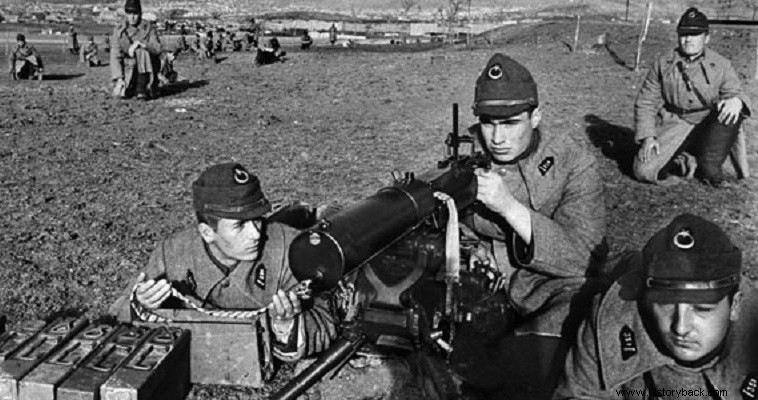
In the past month, 54 Turkish soldiers have died in Idlib province, as the Syrian government under Bashar al-Assad and its Russian allies accuse Turkey of not honoring the agreement to separate groups extremists from other militants in the region. Turkish President Recep Tayyip Erdogan is increasingly embroiled in an open war with Syria over Idlib province, with the fighting right next to the Turkish province of Hatay, which was ceded to Turkey in 1939 after a controversial referendum.
The Syrian army now controls the southern part of Idlib, although the fighting has increased the flow of refugees trying to cross the border to reach Hatay province. The border line between Syria and Turkey is a narrow strip, from east to west, that reaches the Oronda River. At that point it changes direction to the south for about 80 miles, before taking a westerly direction again, meeting the Mediterranean shortly after Kilic Mountain.
Strategically, this small corner, known to Syrians as Liva Iskanderum, is vital to the Turkish state. Now called Hatay Province, the area includes the cities of Antakya and Iskanderum, or as they were formerly known, Antiochia and Alexandretta, as well as the port of Nortiol, which was known as Chork Marzban to the Armenian population before the genocide that ended in 1923.
It was in that year that the founder of modern Turkey, Kemal Atatürk, signed the Treaty of Lausanne, which defined Turkey's borders. These borders remain to this day, except for the province of Hatay, which suddenly became part of Turkey in 1939.
The history of the controversial annexation
Syria, Lebanon and much of the Middle East were parts of the Ottoman Empire until its collapse following its defeat in World War I. According to the Treaty of Lausanne, Hatay Province was part of the French Mandate for Syria and Lebanon but shortly before the start of World War II, Paris suddenly decided to hold a referendum and Hatay Province voted to become part of Turkey.
Syria gained its independence in 1945, with Lebanon as a separate state, and refused to recognize Hatay Province as part of Turkey. For the region, there had been no conflict between the two countries until a few years ago, when the civil war in Syria brought the attention of Erdogan and the Turkish armed forces. Syrian media began highlighting the controversial manner in which Hatay Province had been given to Turkey.
During the late 1930s, when France was worried about possible war with Hitler's Germany, French diplomats were desperately looking for allies in Europe and the Middle East. Atatürk died in 1938 and his successor, İsmet Inonu, wanted to continue the nationalist Turkish line. Thus, when the French proposed a pact of friendship during the coming war, Inonu had no objection to sign if Turkey acquired the province of Hatay. France accepted but in doing so was violating the Treaty of Lausanne. For this reason, in order to provide some form of legitimacy, the French proposed a referendum.
The province of Hatay at that time consisted of various nationalities. Turks, Turkmen, Sunni Arabs, Alawites, Armenians and even some Greeks, without any clear majority. However, Ankara is believed to have moved Turks from other parts of Anatolia to gain a majority in the referendum.
The road to the conflict
Relations between Turkey and Syria have been strained for decades over the issue of Hatay province, although they began to improve in the 1990s, when Turkey sought Syria's help in dealing with Kurdish militants. Shortly before the civil war broke out in Syria in 2011, an agreement was signed between Syria and Turkey for the construction of the Friendship Dam on the Orontes River, costing 28 million dollars.
However, construction was delayed by the civil war and now Turkey and Syria have a rift in relations, with Erdogan angry with his Syrian counterpart Assad because Turkish soldiers have come under attack despite being close to jihadists. Last year Turkey celebrated the 80th anniversary of the annexation of Hatay province. "The province of Hatay, which chose to embrace the motherland with its own will, has strengthened our national unity and is a symbol of our determination for peace, for the security of our unity and our sovereignty," Erdogan said during the celebrations. .
SOURCE:SPUTNIK
